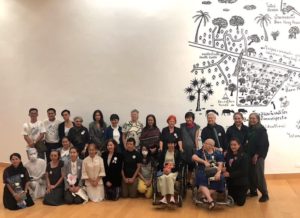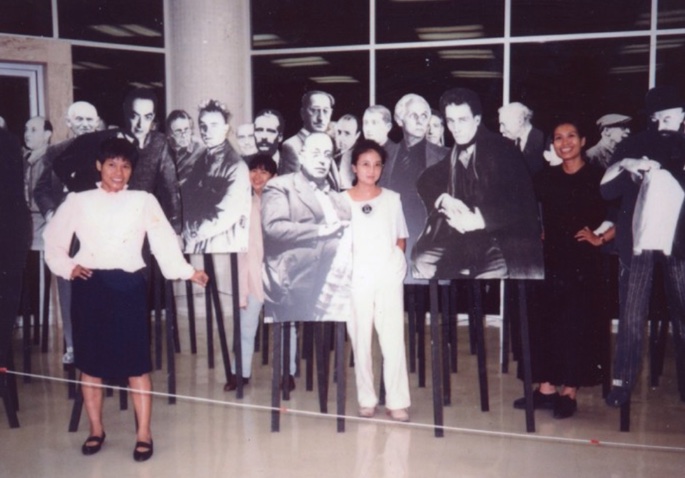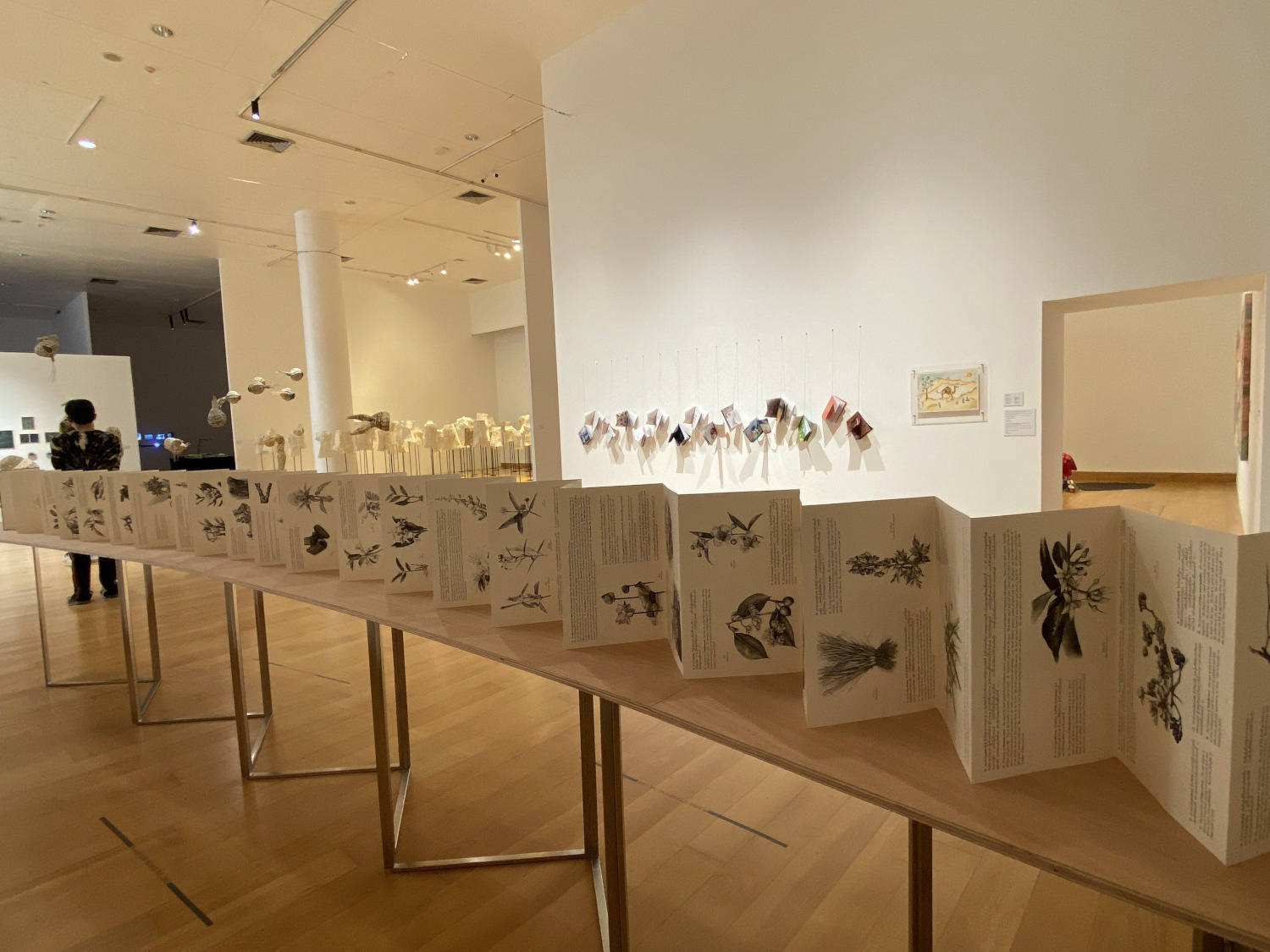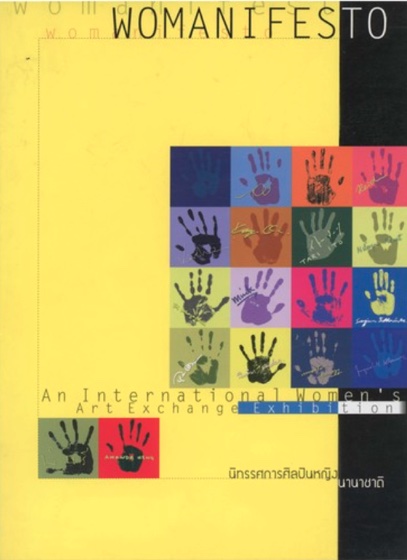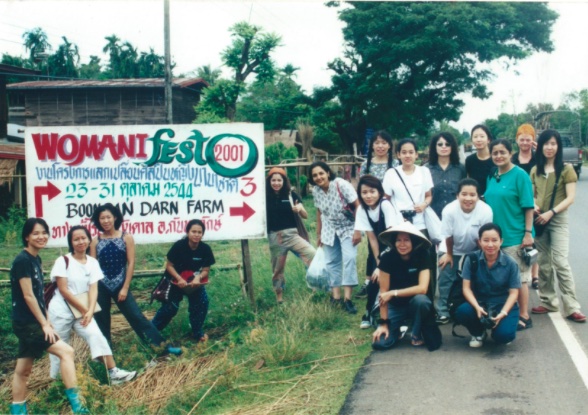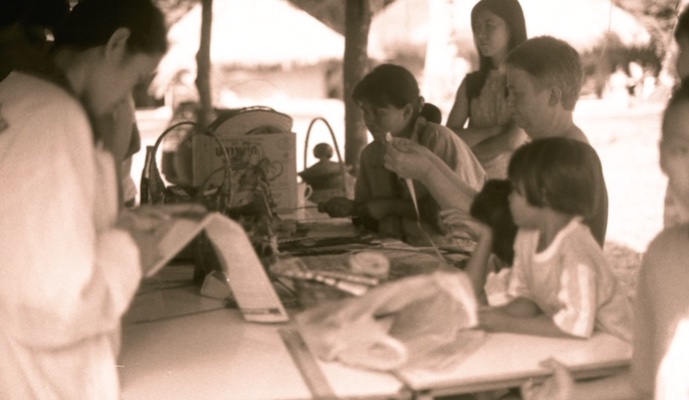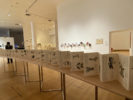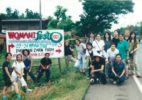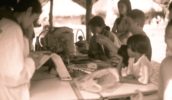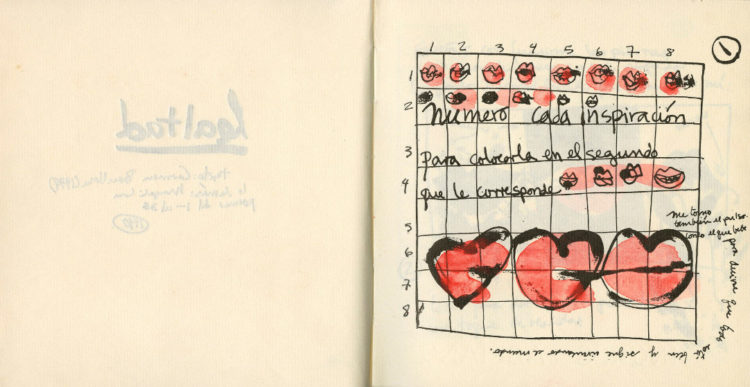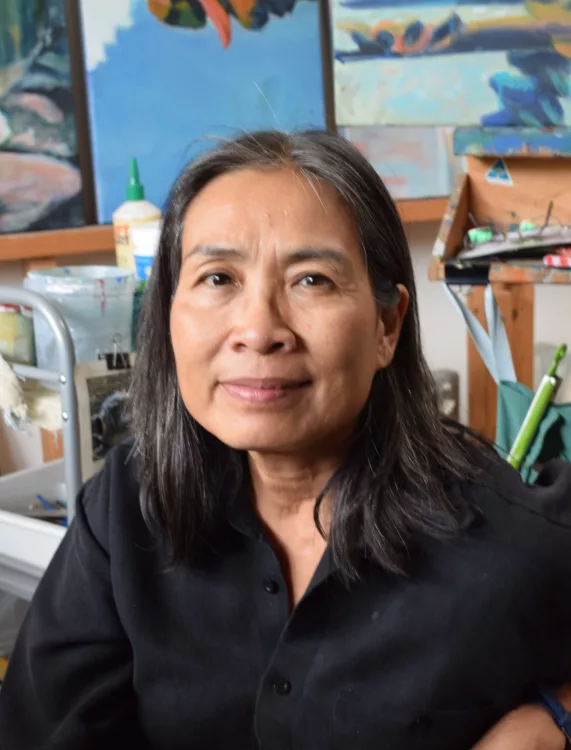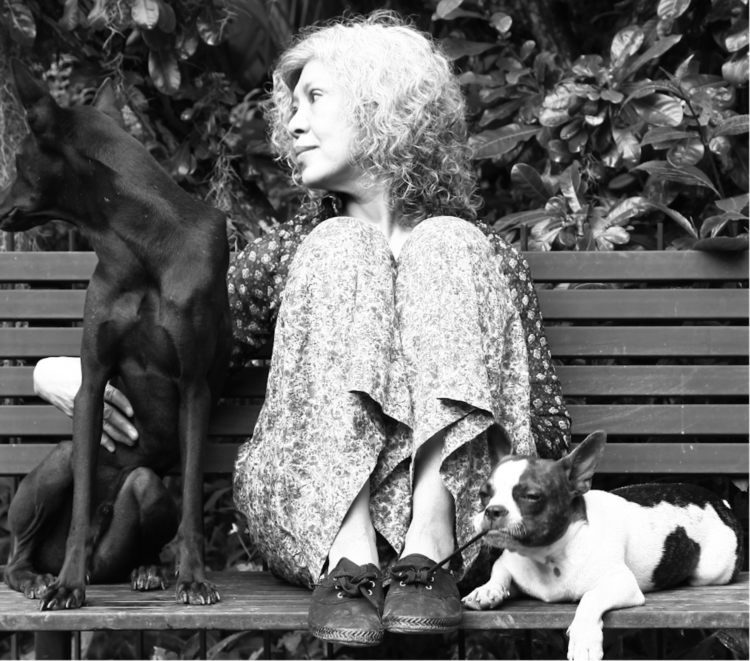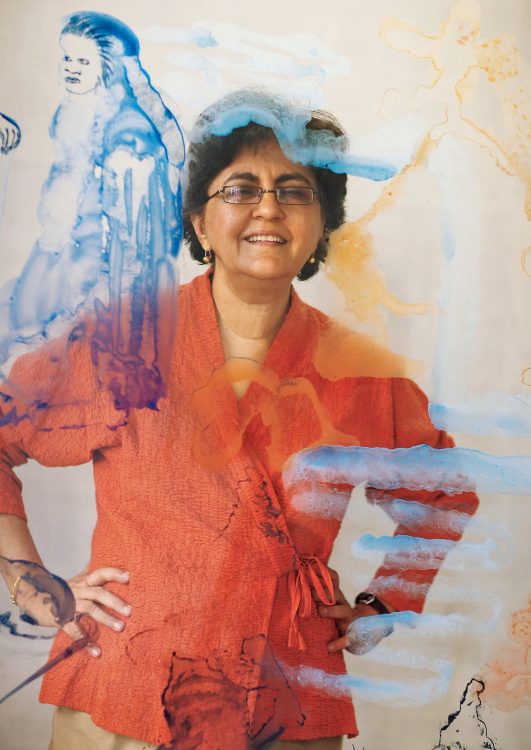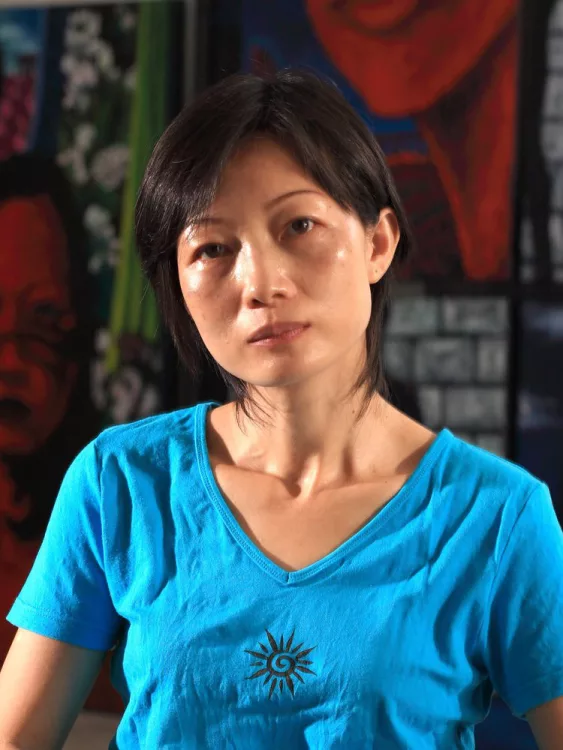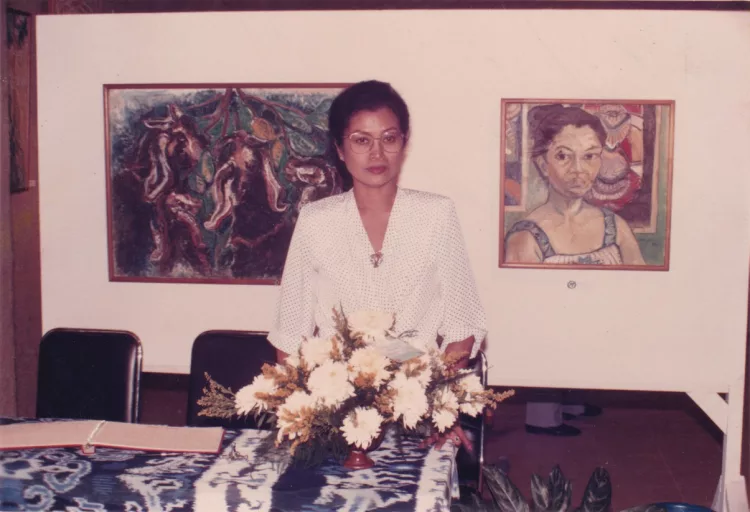Womanifesto Collective
Womanifesto Online Anthology [to be launched in November 2024]
→Multi-Authored, Procreation/Postcreation, A Womanifesto Project, 2003
→NAIR, Varsha. « Womanifesto: A Biennial Art Exchange in Thailand ». Southeast of Now: Directions in Contemporary and Modern Art in Asia 3/2019 (no 1), p. 147-171.
Womanifesto: Flowing Connections, Bangkok Art and Culture Centre, 2023
→“Translations, Expansions”, documenta 15, Kassel, 2022
→Womanifesto, Bangkok, 1997
Womanifesto is an independent arts collective that emerged from feminist discussions at the Concrete House and Empower Foundation in Bangkok, amongst Thai artists and activists including Chantawipa Noi Apisuk (b. 1947) and Chumpon Apisuk (b. 1948). Following its inaugural exhibition, Tradisexion [ประเพณี ประเวณี, 1995], which was coordinated by Jittima Ponsawek (b. 1959) and Nitaya Ueareeworakul (b. 1966), there was momentum among its initiators to make this a regular event. Since then, the collective has organised biannual art projects with the aim to provide women artists with equal opportunities and to develop an international art exchange programme. The most active members of the collective are visual practitioners Varsha Nair (b. 1957), N. Ueareeworakul and Phaptawan Suwannakudt (b. 1959), who met in Thailand before forming an enduring friendship. Operating as a loose consortium of female practitioners, the collective is committed to supporting women’s practice through innovative projects that respond flexibly to the unfolding life events of the key members. Its organisational structure is centered around hospitality and collective generosity.
Womanifesto’s early projects were conducted from venues in Bangkok. Womanifesto I (1997) was held at Concrete House and Baan Chao Phraya (Chaiyong Limtongkul Foundation), with a total of 18 participants, while Womanifesto II (1999), which took place at Saranrom Park, saw almost twice the number of participants. Both exhibitions uniquely supported the international and regional participation of female practitioners at a time when opportunities were limited, crucially promoting women’s contemporary art to an international audience. Subsequent events took the form of art residencies and workshops (2000 and 2008), during which participants stayed and worked with the rural communities in the Isan region. These formative artist-led projects served to bridge the urban-rural divide and foster significant exchanges between artistic communities. Many Womanifesto projects were driven by the organisers’ desire to stay connected with the international art community. This has led to innovative projects exploring critical themes of gender and nationality that are less resource intensive, such as a limited-edition multi-authored publication (Procreation/Postcreation, 2003) and a web-based project showing the works of seventy-five participants (No Man’s Land, 2005).
Following a decade-long hiatus, Womanifesto resumed its projects, beginning with a consolidation of the archival efforts by key members. This second phase further coincided with the wider feminist and art-historical interest in recovering women’s art and history, which led to collaborations with international scholars and institutions to digitise their archives and to develop exhibitions and publications. Since 2019, the Womanifesto Archives have been exhibited in multiple cities including Bangkok, Sydney and Hong Kong. Responding to the global COVID-19 pandemic, a series of online meetings amongst visual and cultural practitioners, Womanifesto 2020: Gatherings, was set up; these regular in-person and online meetings seeded collaboration across generations and provided support to women’s practice in a precarious time. This project evolved into separate online gatherings and became the basis for regular exchanges. In 2023, Nitaya established Baan Womanifesto in Udon Thani. This is Womanifesto’s first permanent space dedicated to its projects and wider engagement with the local community. Womanifesto held its first retrospective exhibition in Bangkok Art and Culture Centre in 2023.
A biography produced as part of the programme The Flow of History. Southeast Asian Women Artists, in collaboration with Asia Art Archive
© Archives of Women Artists, Research and Exhibitions, 2023


